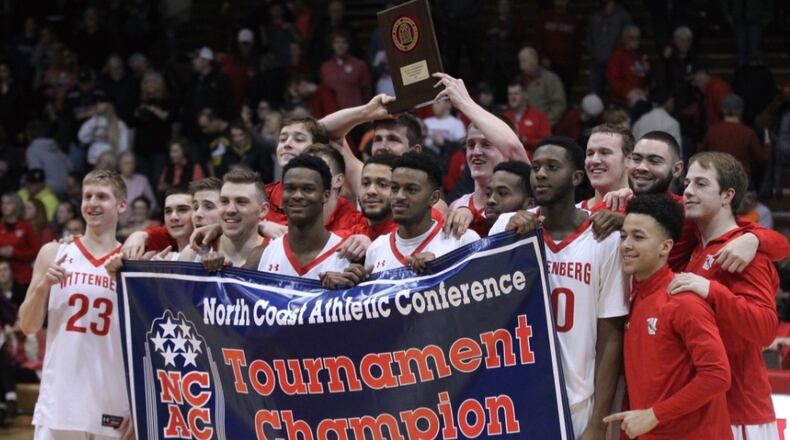Coach Matt Croci, who will be in his fifth season if this season takes place, is trying to figure out what that means for the immediate future of his program. The Wittenberg women’s program, which got a new coach (Brian Neal) in May, faces the same questions.
“I’m hearing that our intentions right will be to explore any possibility of some contests,” Croci said Thursday, “but I think it’s still way too early to tell what that actually means. We and all the other schools around us are still dealing with the protocols and the testing requirements the NCAA has put in place. That’s the No. 1 thing, especially for the smaller schools. We’re facing some decisions on access to testing, cost of testing, frequency of testing, all that kind of stuff and trying to make decisions based on that and how we can balance that with providing the kids an opportunity to play.”
While high schools around the state have played sports all fall and likely will play this winter, they don’t face the COVID-19 testing requirements that NCAA teams do. In Division I, they have more financial resources to pay for testing. Division III falls in the middle, and that’s why its situation is different.
The New England Small College Athletic Conference was the first league to cancel the winter sports season. The NCAC was the second.
The NCAC decision doesn’t kill all hope for Wittenberg. Croci said the league coaches talked Tuesday about what possibilities remain outside the traditional conference schedule.
“Do you play the same opponent a couple times in the same week to help with testing?" Croci said. "Do you bring multiple teams together over a weekend and play a bunch of games? There’s all kinds of things the coaches will be kicking around. I think it will be really determined by what the individual schools decide to do. The first thing we need to know is who’s interested in playing. You get a group of schools that wants to make a go of it and can accept the testing requirements and try to get those teams together with the assistance of the league and put some things together.”
Wittenberg had been practicing for a couple of weeks, Croci said, and was hopeful the work was leading toward a season. When the NCAC made its decision Oct. 16, Croci brought the team together in the film room at Pam Evans Smith Arena and delivered the bad news. He didn’t want to get their hopes up or mislead them. He was just honest about the situation.
“The mood was pretty heavy in the room,” Croci said. “We’ve got 10 returning guys who basically heard that same message in March, and now they’re hearing it again. We’ve got a second senior class of guys that is getting severely impacted by what’s going on. It’s definitely a tough conversation. We’re a tight group and have pretty strong relationships on the team. Guys are definitely pulling together and supporting each other.”
Wittenberg has a six-man senior class class that includes James Johnson, Landon Martin, Rashaad Ali-Shakir, Jordan Welch, Ridge Young and Adam Porter. Johnson, Martin and Ali-Shakir have played big roles since their freshman seasons, helping lead the Tigers to one of the best three-year stretches in school history. Wittenberg finished 28-2 last season, 24-6 in 2018-19 and 27-3 in 2017-18.
While those seniors and the other players on the roster won’t lose a year of eligibility, there’s no guarantee they would choose to come back for a fifth season next year if they don’t get to play this season.
“We’re all helping them work through what options they have, talking with their families," Croci said. "The NCAA is providing the opportunity for kids to come back and fulfill their eligibility, but at our level, they have to pay for it. It’s one thing for the Division I schools to have their kids around and get their fourth year, but for our kids, it’s another year of cost. Guys and families have to start making tougher choices based on what they want to do and what they can afford.”
About the Author

